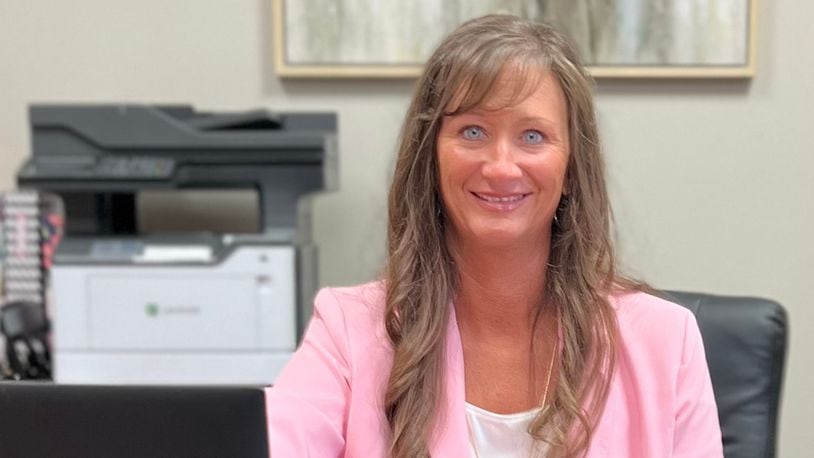“I was 19 years old when I started at the nursing home,” Feltner said. “I was a housekeeper for a year and was asked to start taking nursing aide classes.”
Feltner quickly earned her State Tested Nursing Assistant (STNA) certification and worked in that capacity for 19 years while raising her two daughters.
“When I felt like my girls were old enough, I was 35 years old and decided to go to college,” Feltner said.
By then, her heart was firmly invested in the long-term care field, and she received her associate’s and then her bachelor’s degrees in healthcare administration with a focus on long-term care. She took her first administrator position at a nursing home in Bellbrook, after becoming certified as nursing home administrator.
“I got recruited and took another administrator position in Cincinnati,” Feltner said. “But in 2018, the company I worked for initially brought me back to Dayton.”
Feltner thrived in these positions and earned recognition and rewards for turning some facilities around financially, opening specialized care units, overseeing building renovations and increasing facility censuses.
In early 2020, everything changed with the COVID-19 pandemic hitting the health-compromised elderly population the hardest, especially those living in nursing homes and other care facilities. Feltner was then the administrator at Koester Pavilion in Troy.
“We were the first nursing facility in Ohio to report a COVID case,” Feltner said. “It was a very challenging time and we all had to learn together.”
This meant long hours and few days off with even the Department of Health and Center for Disease Control not entirely sure how to combat the virus and keep it from spreading. And it meant saying goodbye to patients who succumbed to the disease. It is now estimated that more than 30 percent of the deaths from COVID-19 were patients living in long-term care facilities.
“Before we even knew what it was, it spread through the building,” Feltner said.
She credits Premier Health for helping provide local nursing homes by donating Personal Protective Equipment (PPE) and lending the expertise of their infectious disease physicians.
After more than a year, the virus was finally under control and Feltner decided to grow her career by taking the administrator position of the New Lebanon Rehabilitation and Healthcare Center, a much larger facility.
Today, though COVID-19 continues to plague hospitals and individuals through several different variants of the disease, Feltner is proud and relieved her facility has not seen an uptick in cases.
“One of the biggest challenges during the pandemic for patients was that families were not allowed to visit,” Feltner said. “This had a negative effect on mental health so we were grateful when we could allow it again.”
After building a successful career in the long-term care field, Feltner says she is grateful for that housekeeping position she was offered as a teen.
“I fell in love with the residents then and have always loved caregiving,” Feltner said. “I became a director when I learned I could make an even bigger impact.”
The bigger impact is working to recruit more professional staff, so patients get the care they need, ensuring facilities are updated and offer needed services and welcoming visitors like family.
Still, the residents in her facility are what continue to motivate Feltner most at work as they have since she was a housekeeper all those years ago.
“We have the privilege of seeing the short-term residents rehabilitate and go home,” Feltner said. “And our long-term residents are family. We can all learn from the stories they tell us of their lives.”
About the Author
